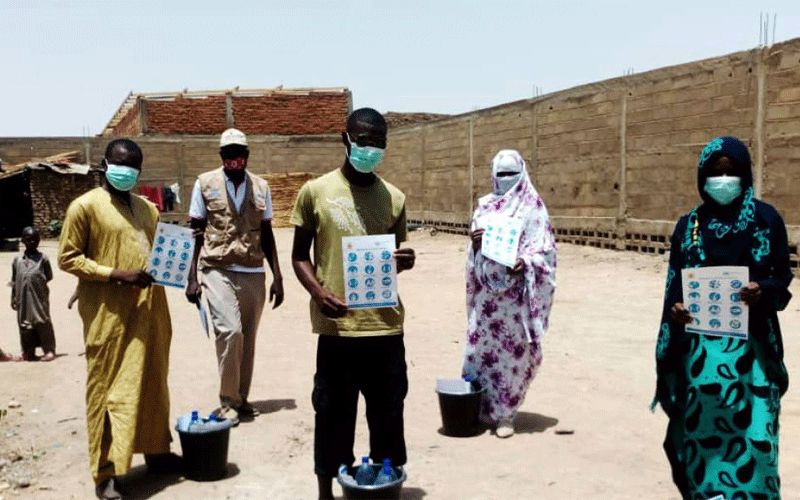Eastern Chad, 13 May, 2020 / 1:30 am (ACI Africa).
As schools in Chad remain closed due to COVID-19-related restrictions, teachers working under the Jesuit Refugee Service (JRS), the international refugee organization of the Society of Jesus (Jesuits), are engaging refugees in the landlocked north-central African nation, conveying messages on safety measures to prevent the spread of the virus in the communities.
¨We came together to raise awareness among the community. Our students are part of it, so it is important for us to spread the message,¨ Ibrahim Isaakh, a Natural Sciences teacher in Djabal, Southeastern Chad has told JRS.
On her part, Fatimé Ali Rifa, a teacher in Touloum refugee camp, Iriba, located in the East of the country has been recommending frequent handwashing, avoidance of crowds and public gatherings as precautionary measures to the prevent the spread of the coronavirus disease.
Schools in Chad, Africa’s fifth largest nation, have remained closed since March 19, a move that the leadership of JRS says has brought new challenges to the more than 102,000 refugee students across the country.
“Their (students) academic engagement is at risk of great delay as many refugees lack a TV or radio to be able to follow the telematic classes offered by the government,” JRS leadership has noted.








